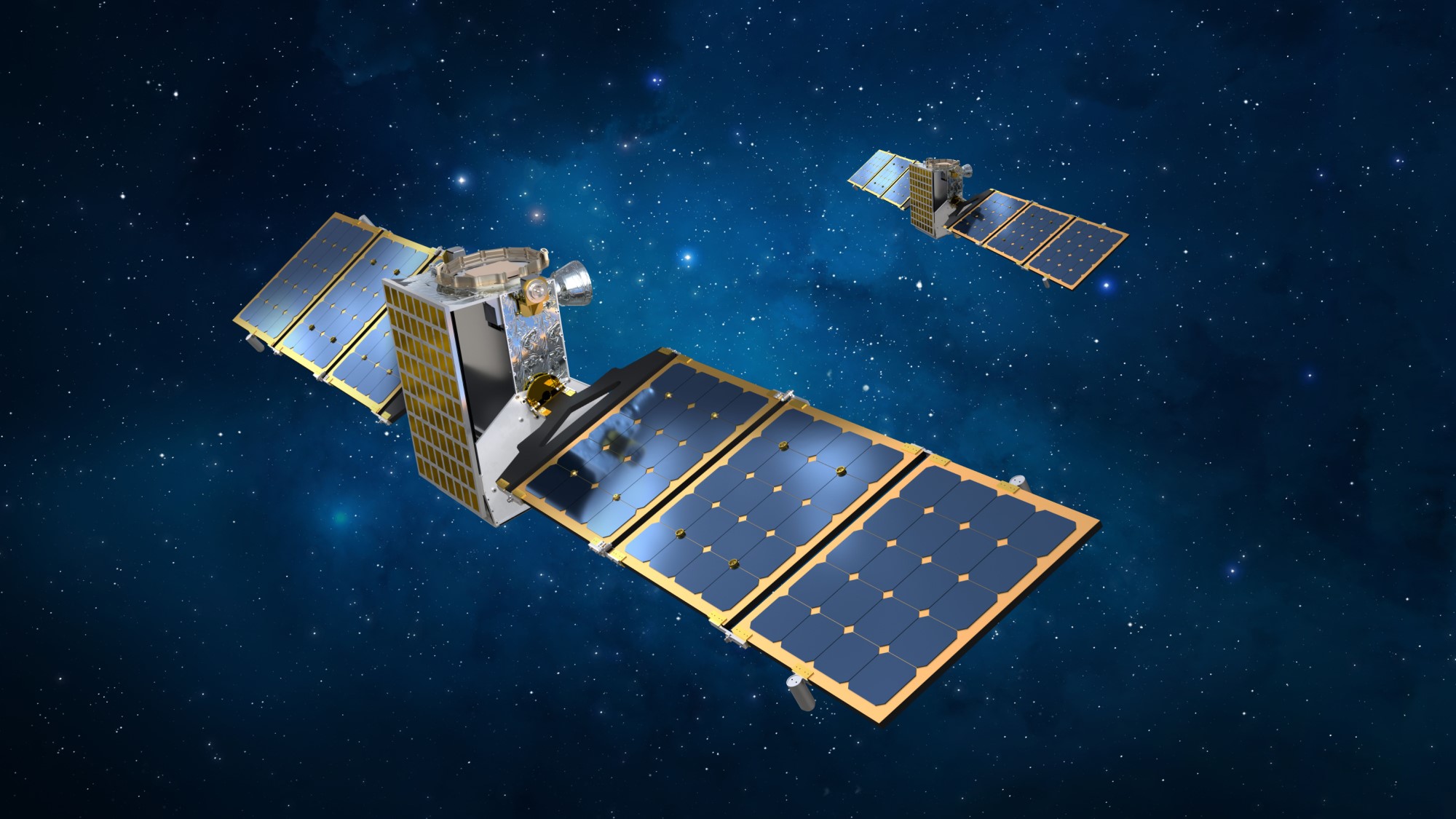Shelved NASA spacecraft could spy on asteroid Apophis before 2029 Earth flyby
The two Janus spacecraft could have second lives — fitting for a mission named after the Roman god of duality.

NASA is considering pulling a pair of shelved spacecraft out of storage to facilitate a non-agency mission to spy on notorious asteroid Apophis.
Apophis, also known as asteroid 99942, is a 1,100-foot (340-meter) asteroid set to fly by Earth in 2029. Named after the Egyptian god of chaos and destruction, the massive space rock was once predicted to have close to a 3% chance of hitting Earth. More recent calculations have downgraded the chances of that potential 2029 collision, but planetary defense scientists are still studying the asteroid closely to determine any future risk of an Earth impact.
NASA has already sent its OSIRIS-APEX spacecraft (formerly called OSIRIS-REx) on a "bonus mission" to study Apophis, and the European Space Agency is developing its own relevant mission known as Ramses. Still, it appears NASA wants more intel on Apophis ahead of the object's 2029 approach. In a notice posted to federal government contracting site SAM.gov, the space agency has requested information on how to develop a non-NASA-led "reconnaissance mission" to Apophis using its shelved Janus spacecraft.
The Janus spacecraft are two asteroid probes originally designed to launch with NASA's Psyche probe that lifted off atop a SpaceX Falcon Heavy rocket on Oct. 13, 2023.
Delays to that mission meant the Janus probes would miss their targets — a pair of near-Earth asteroid binaries — so NASA decided to "stand down further work on the Janus mission," the agency wrote in July 2023. Now, it seems the Janus spacecraft could have second lives — fitting for a mission named after the Roman god of duality who is usually depicted as having two faces.
NASA's Request for Information (RFI) asks industry, academia and other researchers to propose new approaches for using the Janus spacecraft to "demonstrate a rapid-response flyby of Apophis" and further our scientific understanding of the asteroid ahead of its April 2029 near-Earth encounter.
In particular, NASA wants proposals for how to "demonstrate and test capabilities to fly by and characterize a hazardous NEO," or near-Earth object, using a low-cost, rapid turnaround mission.
Breaking space news, the latest updates on rocket launches, skywatching events and more!
Earlier this year, the director of NASA's planetary science division Lori Glaze said that while the 2029 Apophis approach "presents a unique opportunity," getting a mission together to study the space rock is difficult given NASA's ongoing budgetary issues. "Our budget situation is really, really challenging, and that is a reality that we have to live within." Glaze said, according to SpaceNews. "You can have the will, but without the funding it makes it really challenging,"
NASA's RFI notes that proposals for using the Janus spacecraft to fly by Apophis should include information on how interested parties will approach obtaining funding.

Brett is curious about emerging aerospace technologies, alternative launch concepts, military space developments and uncrewed aircraft systems. Brett's work has appeared on Scientific American, The War Zone, Popular Science, the History Channel, Science Discovery and more. Brett has degrees from Clemson University and the University of North Carolina at Charlotte. In his free time, Brett enjoys skywatching throughout the dark skies of the Appalachian mountains.

